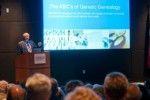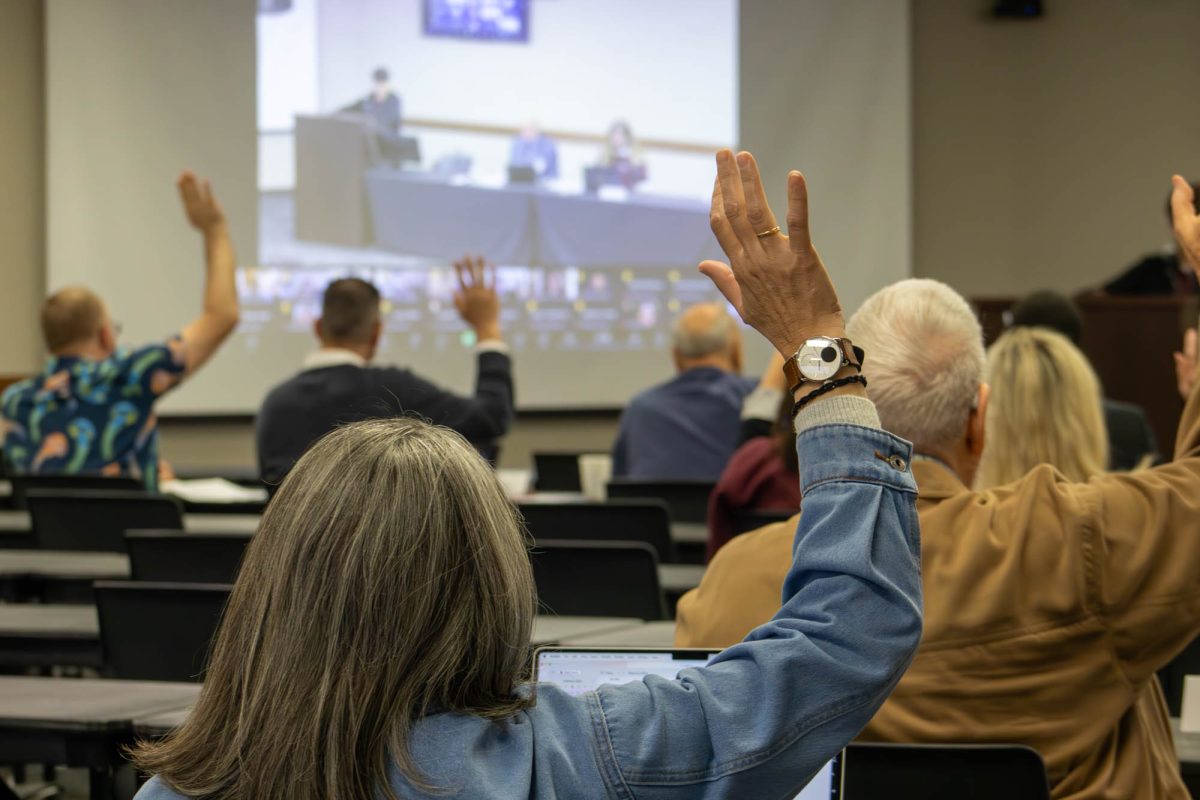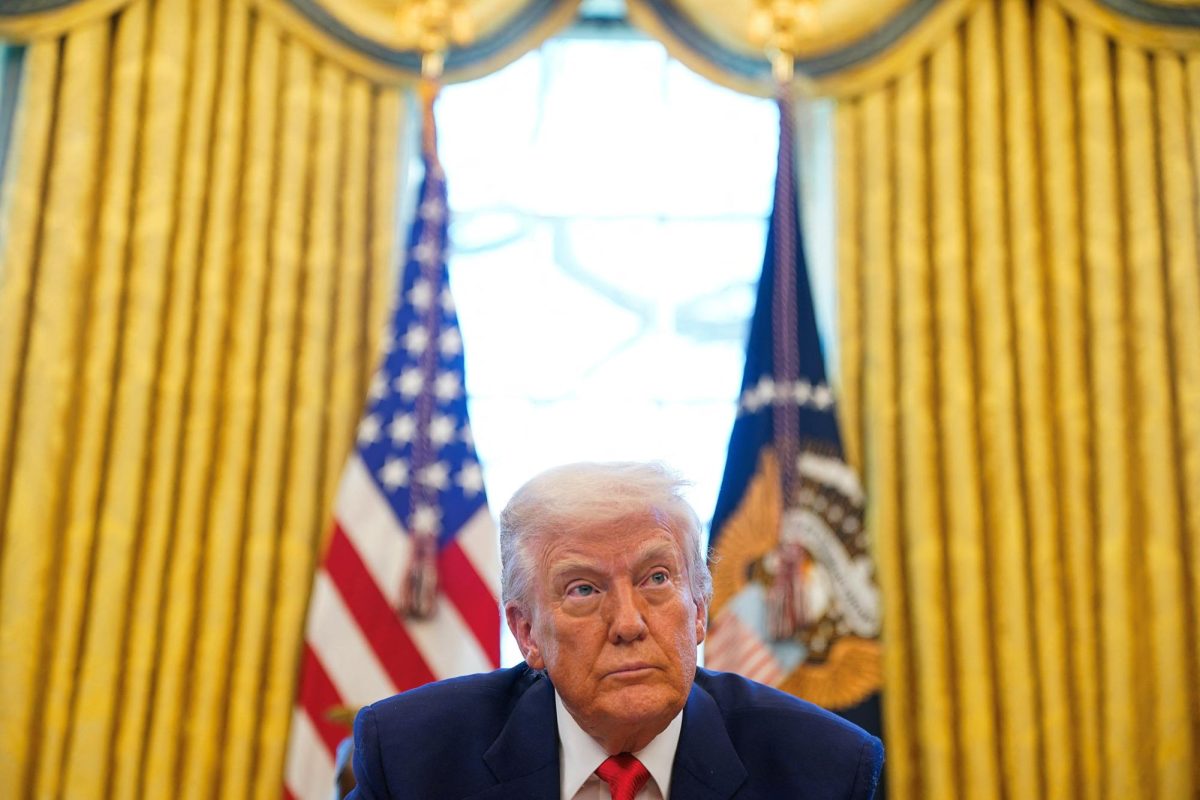Instead of following the paper trail of birth certificates and family history annals to trace lineage, scientists are capable of using molecular biology to find ancestors quickly and efficiently to connect people to family they didnt think existed.
Bennett Greenspan, founder and CEO of Family Tree DNA, presented the principles behind his company in Thursdays workshop DNA: The Secret to Family History. Family Tree DNA offers individuals analysis of DNA for genealogical purposes through testing of autosomal DNA, Y-DNA and mtDNA (mitochondrial DNA).
Greenspan explained the programs benefits by first spelling out in laymans terms the ABCs of the Y-DNA (non-recombining DNA), or the DNA that traces an individuals paternal line. In addition to offering a look back into ones history, Greenspan presented his programs use of the Y-DNA to peek into the future of the medical field.
Deborah Wheeler, archivist at the George Bush Presidential Library, gave an abridged version of the application of Greenspans research in disease prevention.
Modern applications of genealogy arent limited to discovering long-lost relatives. Scientists are capable of predicting and preventing certain medical conditions.
You may be having your DNA tested for genealogical purposes, Wheeler said. But there are also scientific breakthroughs where you can have your genomes traced for types of medical conditions that they can target treatment for.
As Greenspan described, testing with Family Tree DNA gives individuals the opportunity to discover distant relatives, determine degree of relations, make contact with matches, and test adoptees lineage.
I cant tell you the tears of joy that we see of folks who are adopted who actually find biological relatives through our system, Greenspan said. It is the most personally gratifying thing.
Greenspan said his interest for genealogy was sparked as a boy when his grandmother passed away and he yearned to reach out to and learn from the relatives he had left.
I picked up and put down my genealogy many times over the next 30 years until I finally figured out that I could use molecular biology to get past my paper trail blocks, Greenspan said. The rest was 10-12 years of DNA testing.
The George Bush Library presented this workshop in conjunction with its current traveling exhibit, Genome: The Secret of How Life Works, and with the National Archives and Records Administration.
In general, we started doing these [genealogy events] because we are part of the National Archives, which is a very popular venue for genealogists as they hold so many U.S. records, Wheeler said.
Wheeler said this is an opportune time for young adults to learn about their genealogy, considering the technological advances.
Yall are so fortunate that right now we really are on the cutting edge of the genome technology, Wheeler said. It doesnt matter if you are studying animal science, agri-life, pre-med, or even arts and humanities, you can still benefit from learning how the DNA can be utilized in real-world opportunities.
Greenspan focused on the benefits to come of being knowledgeable in microbiology.
The real important thing is that the brave new world that we are all going into is really filled with molecular biology, Greenspan said. The more [young people] understand about molecular biology, the better off they will probably be. They are young enough that this will probably affect them for the next 40, 50, 60 years. So dont shy away from all of your science.
Nancy Kinkler came to the workshop out of her interest for genealogy and learned of its widespread applications.
Its just very interesting, Kinkler said. I didnt even know that they were doing such specialized testing like this for genealogy. For medicine I knew, but not for genealogy.
Kinkler attended the event with Harriet Elliott. Both women share a common curiosity for genealogy.
We are sister in laws, and I guess we have always had real interest in our ancestry, in who they were, said Kinkler. Its interesting to use technology in researching your ancestry.
Elliot said she finds modern technological advances beneficial in comparison to old-fashioned methods using paper documentation.
You do hit those paper trail blocks where you cant prove a marriage, when everythings in courthouses or on tombstones, Elliot said. How else did they do genealogy back then?
DNA shown as link to family past
October 12, 2012

0
Donate to The Battalion
$2790
$5000
Contributed
Our Goal
Your donation will support the student journalists of Texas A&M University - College Station. Your contribution will allow us to purchase equipment and cover our annual website hosting costs, in addition to paying freelance staffers for their work, travel costs for coverage and more!
More to Discover








